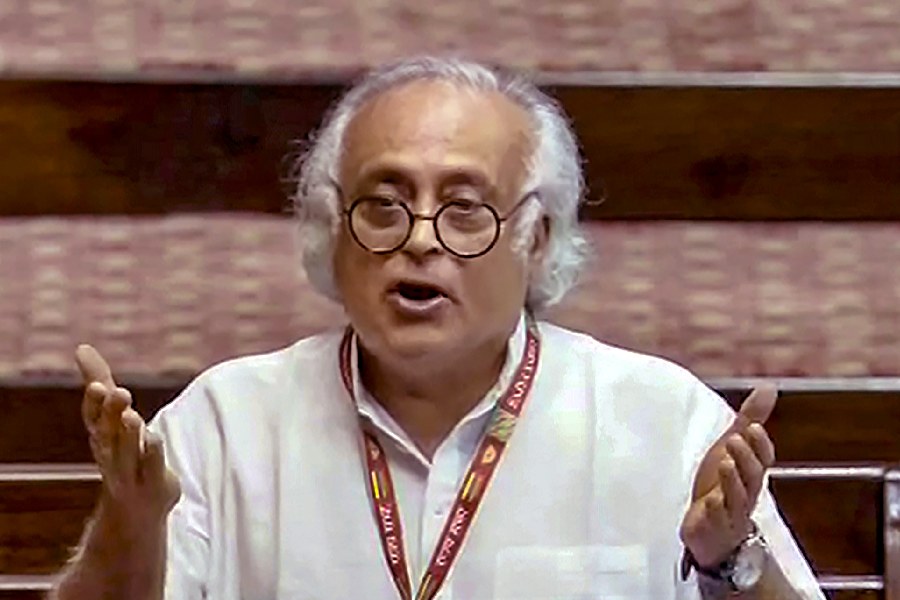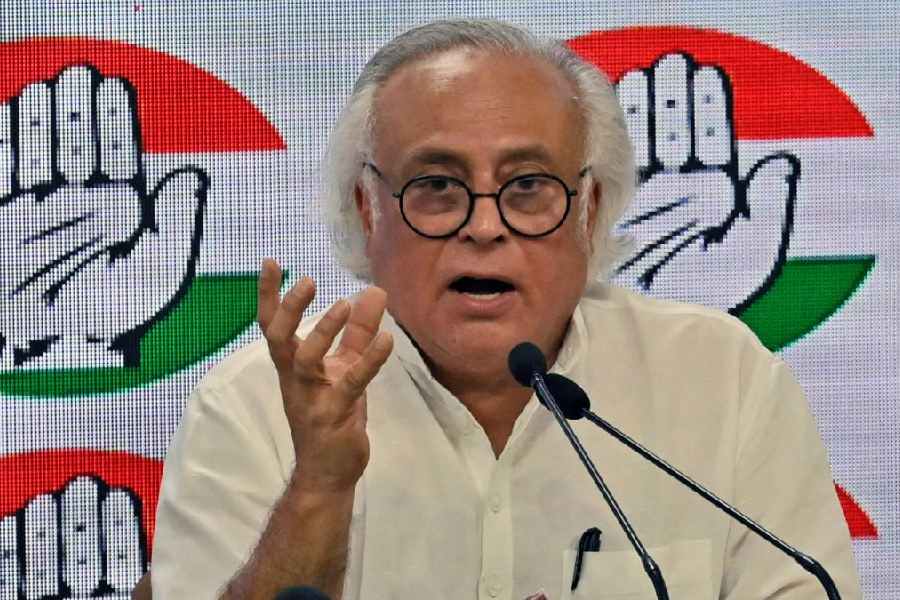Congress leader Jairam Ramesh on Wednesday accused the government of attempting to "airbrush" the milestones achieved in the space sector since the 1960s, and said the Indian space programme should be looked as an instrument of development and "not an instrument of muscular nationalism".
While lauding the Chandrayaan-3 mission, he said there was a need to remind the House of the people who have contributed so far to it, rather than fall victim to this new impression that has been created that this entire accomplishment is the result of only one individual.
Participating in a discussion on 'India's Glorious Space Journey Marked By Successful Soft Landing of Chandrayaan-3" in the Rajya Sabha, he said its success is based on the competencies, capabilities and capacities that have been created over 60 years.
"...we need to give our scientific and technological institutions full freedom. We need to give our scientific and technological institutions full independence and professionalism and we need to free our scientific and technological institutions of any political patronage and political interference and intervention," Ramesh said.
He called for acknowledging the glorious space journey that started in the early 1960s and the important milestones achieved so far.
"Even though the prime minister and the Leader of the House may choose to airbrush them away from history, they are a fact of life. They cannot be erased from history. They are very much part of our space journey," he said.
"I thought that it is important for me to remind the House where we have come from, the journey that we have taken, the achievements that we have had, the people who have contributed, rather than fall victim to this new impression that has been created that this entire accomplishment of Chandrayaan-3 and Aditya is the result of only one individual," he added.
If you intend to pass a resolution on Chandrayaan-3, please acknowledge that the capabilities, competencies and capacities that have resulted in its success are the results of investments made over the last 60 years.
These are based on contribution of successive prime ministers. These are based on contribution of a large number of Indian scientists and technologists, many of whom we don't even know of, many of whom we don't even acknowledge, the Congress leader added.
Recalling the history of the Indian space programme, Ramesh said the first milestone was on February 22, 1962 when an office order was issued to establish the Indian National Committee for Space Research.
The second milestone was creation of the ISRO on August 15, 1969 and the third milestone in July 1972 July when Satish Dhawan became the chairman of ISRO.
Ramesh noted that Indian space programme has always had a developmental orientation.
"It has always been space for development, space for communication, space for rural development, space for weather forecasting, space for identifying sources of water. Indian scientists and technologists have never seen India's space programme as a symbol of Indian nationalism. It has always been seen in a developmental perspective," he said.
Ramesh said the Indian space programme fundamentally should be looked as an "instrument of development and not as an instrument of muscular nationalism." This has been the hallmark of India's space programme for the last 60 years and let it be in that spirit, he added.
"I associate myself with the leader of the House (Piyush Goyal). We acknowledge we salute, we applaud ISRO (Indian Space Research Organisation), the past members of ISRO family, the present members of ISRO family. We congratulate our Indian scientists, we congratulate our Indian technologists," Ramesh said.
He expressed confidence that ISRO would accomplish many more achievements in the years to come.
Except for the headline, this story has not been edited by The Telegraph Online staff and has been published from a syndicated feed.












